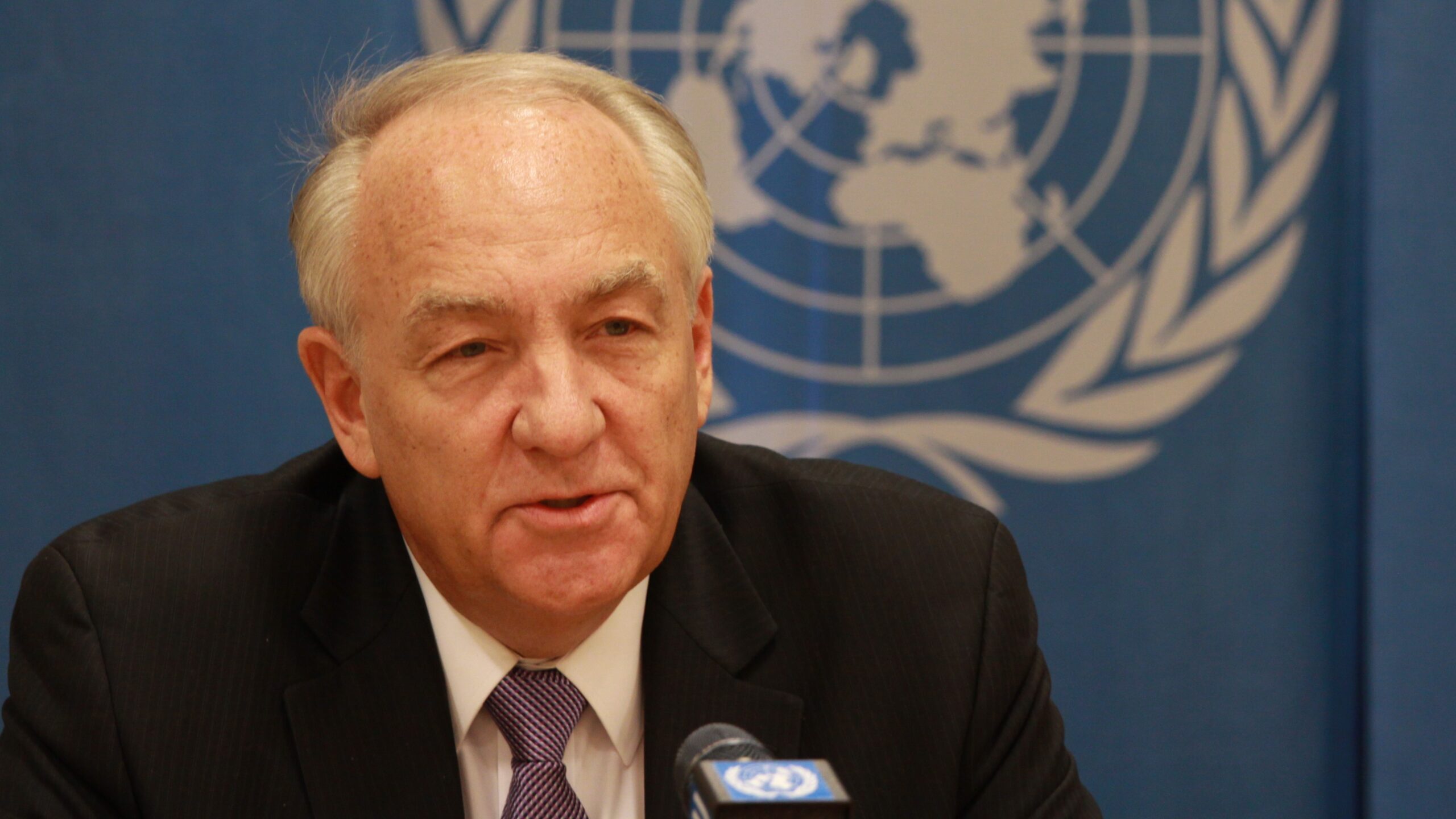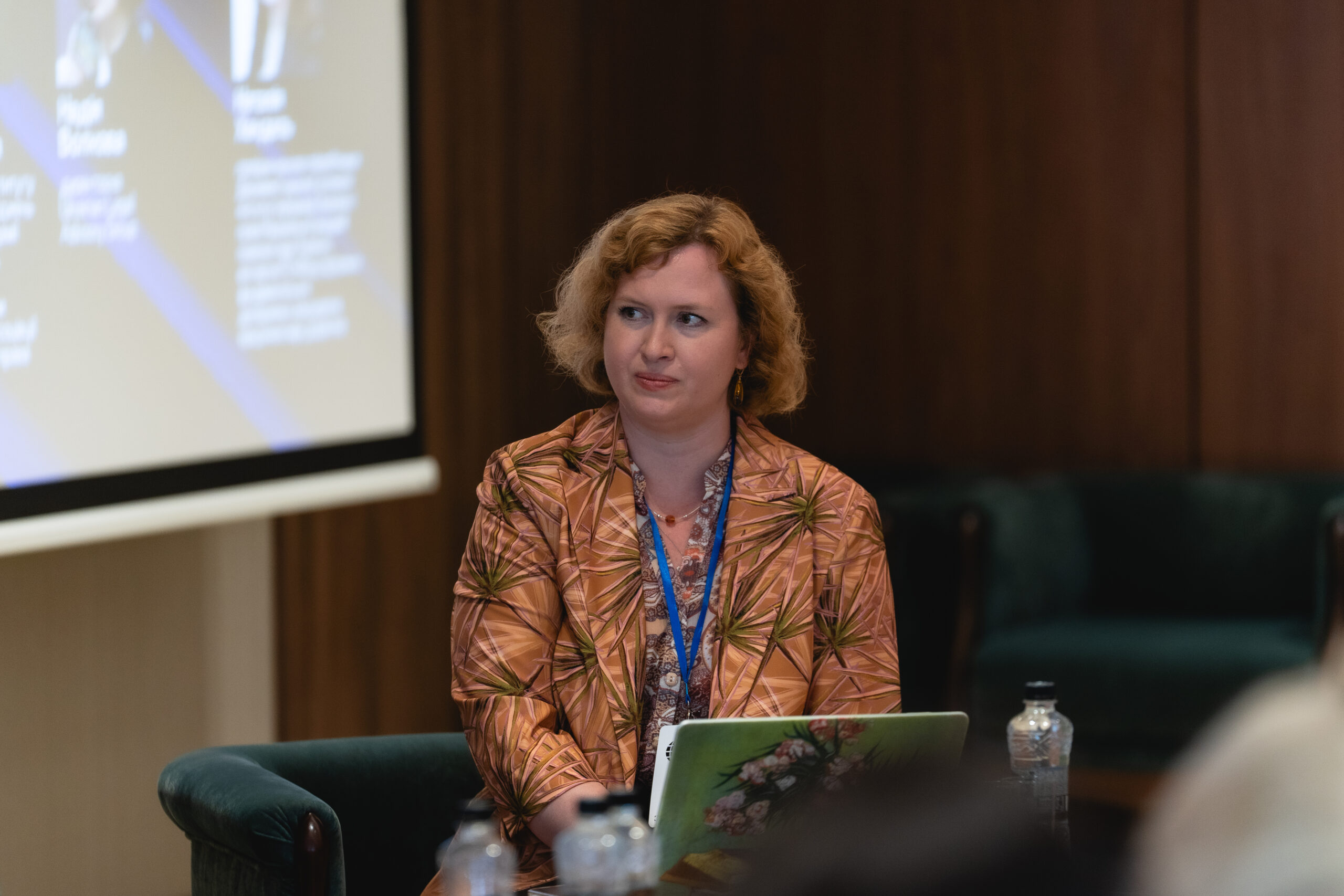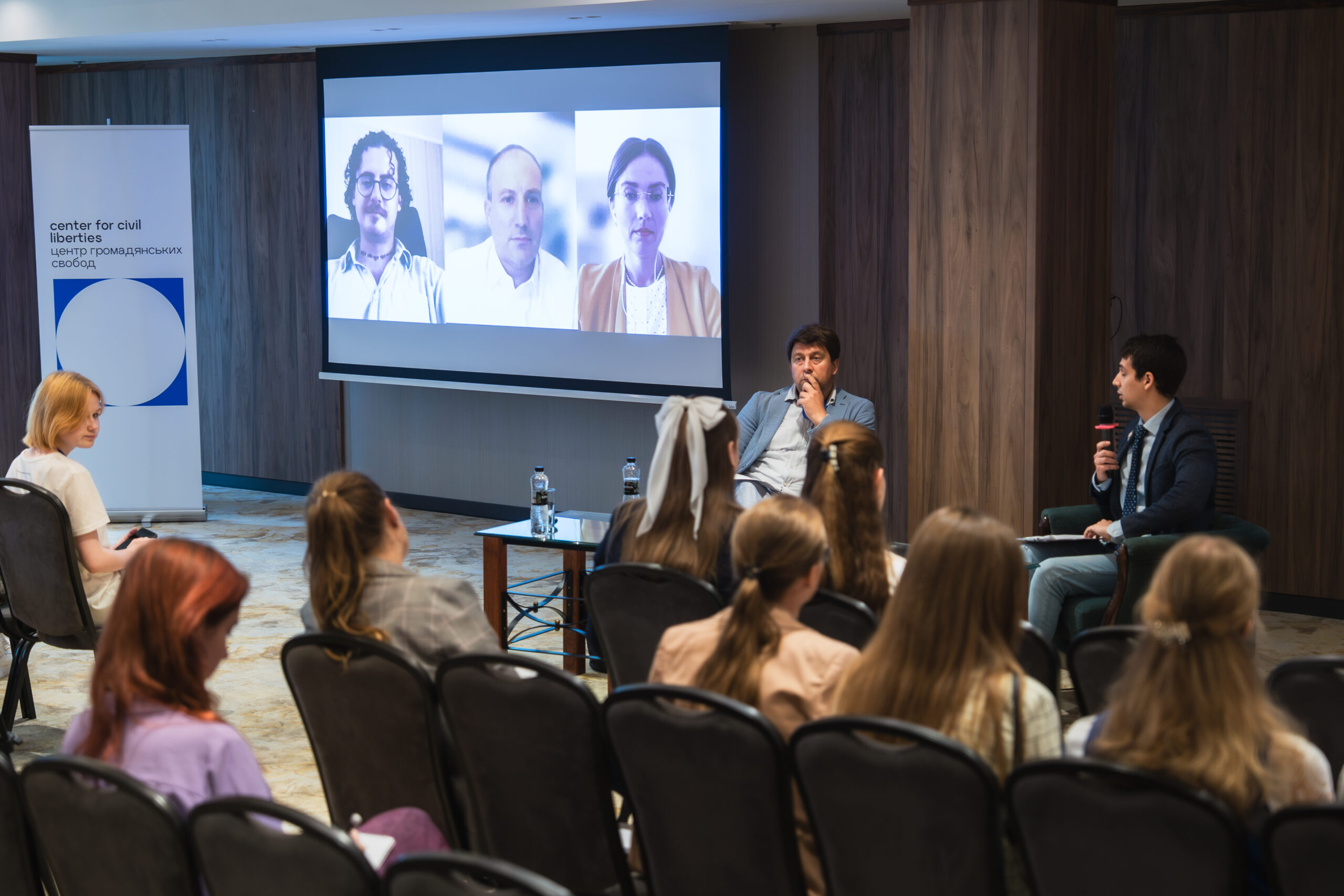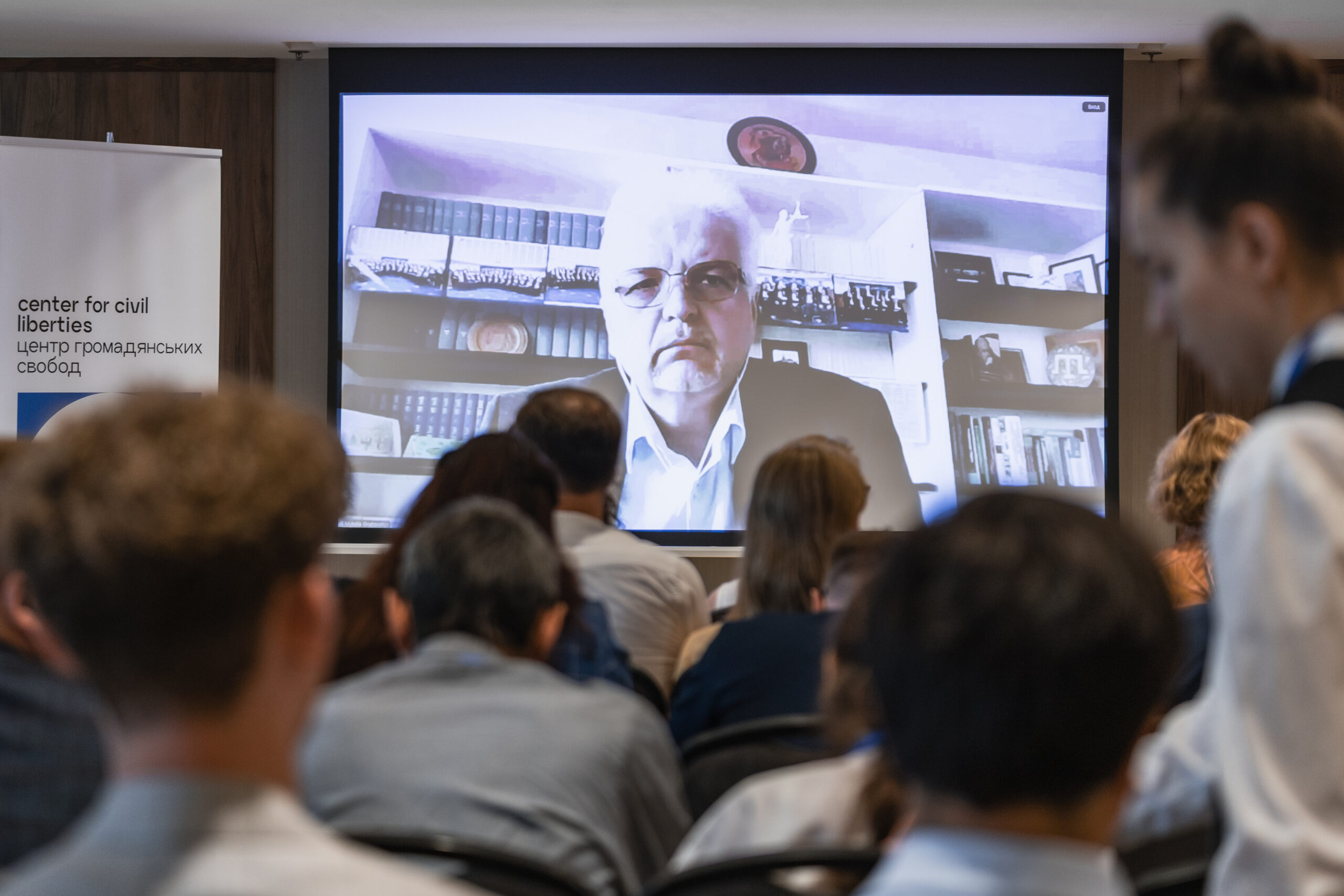On 15 July, a webinar took place featuring Stephen J. Rapp, former United States Ambassador-at-Large for Global Criminal Justice (2009–2015), Chief Prosecutor at the International Criminal Tribunal for Rwanda, and the Special Court for Sierra Leone. It was held as part of the Ukrainian Week of International Criminal Justice, organised for the sixth time by the Centre for Civil Liberties. During his lecture, Rapp focused on the issue of the crime of aggression in the context of the International Criminal Court (ICC), the 2010 Kampala Amendments, and the future prospects of international justice.
The Crime of Aggression: Its Essence, Importance for Ukraine, and Jurisdictional Limitations of the ICC
Rapp emphasised that the crime of aggression is a decisive factor that paves the way for the commission of other international crimes – namely war crimes, crimes against humanity, and genocide. In his view, the act of aggression marks the starting point of the destruction of infrastructure, large-scale violence, and human rights violations.
However, even while acknowledging the strategic significance of the crime of aggression, international justice is confronted with serious limitations in pursuing accountability for it, particularly in the case of the Russian invasion of Ukraine.
Although Ukraine had recognised the jurisdiction of the ICC for the investigation of war crimes, crimes against humanity, and genocide (through two declarations under Article 12(3) of the Rome Statute) prior to acceding to the Rome Statute in January 2025, the crime of aggression does not fall under the Court’s jurisdiction. This is due to a special regime enshrined in Article 15 bis, which was the result of a political compromise during the 2010 Kampala Conference. According to this article, the Court may only consider a case if both the aggressor State and the victim State are parties to the Rome Statute, have ratified the Kampala Amendments on the crime of aggression, and have not exercised their right to opt out of jurisdiction. This provision effectively blocks the possibility of prosecution for the crime of aggression in cases such as that of Russia, which is not a party to the Rome Statute and has not ratified the amendments.
Moreover, the alternative route to accountability provided by Article 15 ter of the Rome Statute – which allows the United Nations Security Council to refer a situation involving the crime of aggression to the ICC – is effectively blocked in practice, since Russia, as a permanent member of the Council, holds veto power.
Rapp made clear that, due to these legal constraints, the ICC is currently unable to consider the crime of aggression against Ukraine, despite the clear facts and the existence of compelling evidence.
The Kampala Amendments and the International Legal Compromise
The legal restrictions that today prevent the ICC from prosecuting the crime of aggression arose as a result of a political compromise reached at the 2010 Review Conference in Kampala. It was at this point that the international community for the first time agreed on a definition of the crime of aggression and the conditions for its jurisdictional application. Rapp, who headed the United States delegation, also participated in these negotiations. Although the United States was not prepared to join the Rome Statute, its delegation sought to constructively contribute to the development of mechanisms that would make the Court effective.
At the time, the prevailing belief was that inter-State acts of aggression were a thing of the past, and the primary threat was thought to lie in internal armed conflicts and crimes committed domestically. However, the events of 2014 – the occupation of Crimea and Russia’s aggression in eastern Ukraine – radically altered the perception of security: the crime of aggression returned as a real and persistent threat to the international order.
At a recent Assembly of States Parties conference in New York, Ukraine and its partners advocated for the revision of Article 15 bis, which establishes the complex system of “double activation” of ICC jurisdiction regarding the crime of aggression. It was proposed that the requirement for both the aggressor State and the victim State to be parties to the Rome Statute and to have ratified the Kampala Amendments be abolished. This proposal met with resistance from a number of States, while the United States, according to Rapp, expressed a critical stance on the ICC’s investigation concerning Israel, which complicated their support for the reform.
A compromise was ultimately reached: to return to discussions of the proposed amendments at the intersessional meeting in 2027, with a decision postponed until 2029. Rapp noted that these changes will not directly affect the situation concerning Ukraine, as they will not have retroactive effect and will not apply to the already committed crime of aggression by Russia. At the same time, he emphasised that such reform is of critical importance for the future of international justice, as it sets a genuine precedent for future accountability of other potential aggressor States.
Establishment of a Special Tribunal: Opportunities and Challenges
In view of the limitations of the Rome Statute, Ukraine, in cooperation with the Council of Europe, has initiated the creation of a Special Tribunal for the Crime of Aggression against Ukraine. Rapp supported this initiative, noting that an appropriate treaty has already been concluded, and negotiations are underway concerning the establishment of a governing board and budget. He stressed that, based on international experience (in particular in Sierra Leone), such courts can be effective even without support from the UN Security Council.
He also noted that the Special Tribunal and the ICC could work closely together – sharing evidence, coordinating investigations, and avoiding duplication of efforts. This would allow for more efficient use of resources and expedite justice. However, the key challenges remain funding and international legitimacy. Rapp stated that the participation of Germany and other countries in financing is a critical factor for the functioning of the tribunal.
During the Q&A session, Rapp acknowledged that international justice is often slow and largely symbolic in nature. Yet even symbolic measures matter: Putin is unable to travel freely, his role in international diplomacy is constrained, and ICC arrest warrants are not subject to any statute of limitations. He cited examples of cases, including those concerning Nazi criminals, where prosecutions were brought decades after the crimes were committed.
Commenting on the notion that international justice often focuses only on accountability rather than punishment, Rapp stated that, for him as a former prosecutor, just punishment is an integral part of justice. However, he stressed the need to observe the rights of the accused, in order not to undermine trust in the judicial process. Once a fair trial has taken place, the sentence should be the most severe allowed under international law.
Rapp’s presentation laid bare the central dilemma facing contemporary international criminal justice: how to reconcile high legal standards with the political will necessary to overcome impunity for the crime of aggression. The situation in Ukraine has become a catalyst for a global discussion on the effectiveness of existing mechanisms and the need for their reform.
Summary prepared by Karen Kharatian, volunteer at the Center for Civil Liberties.







